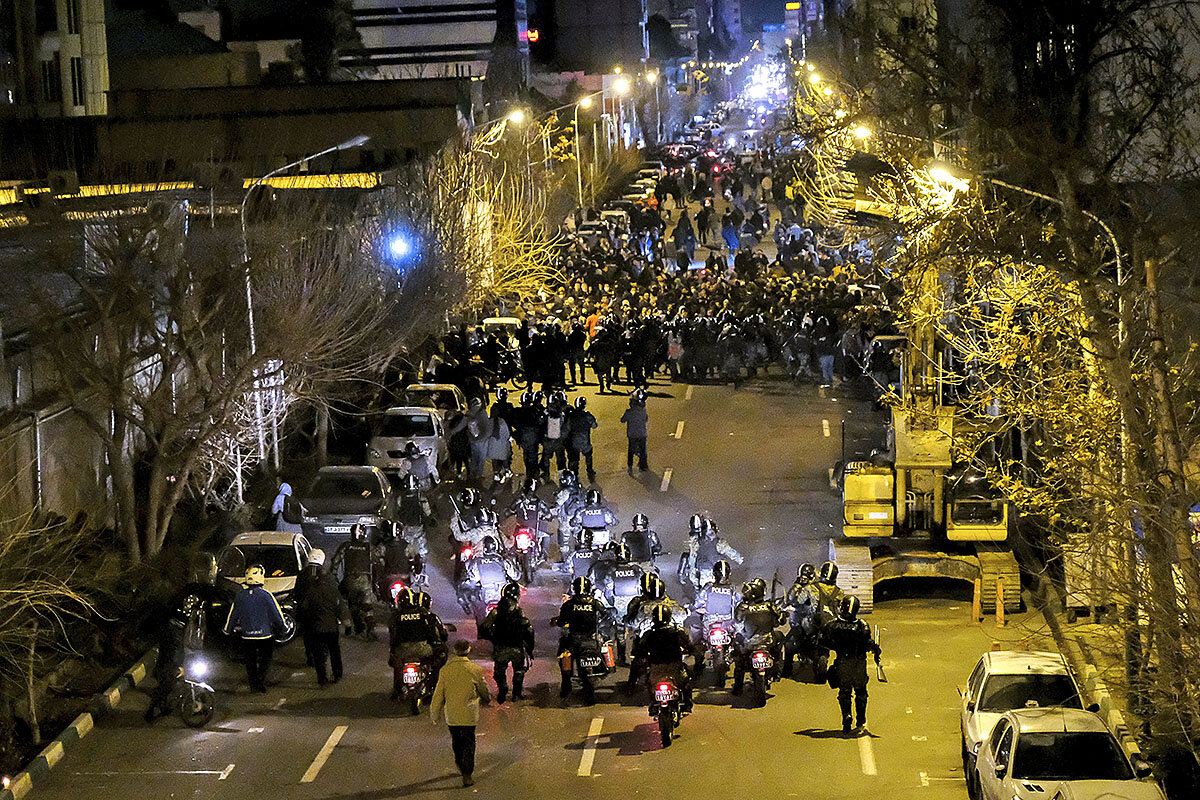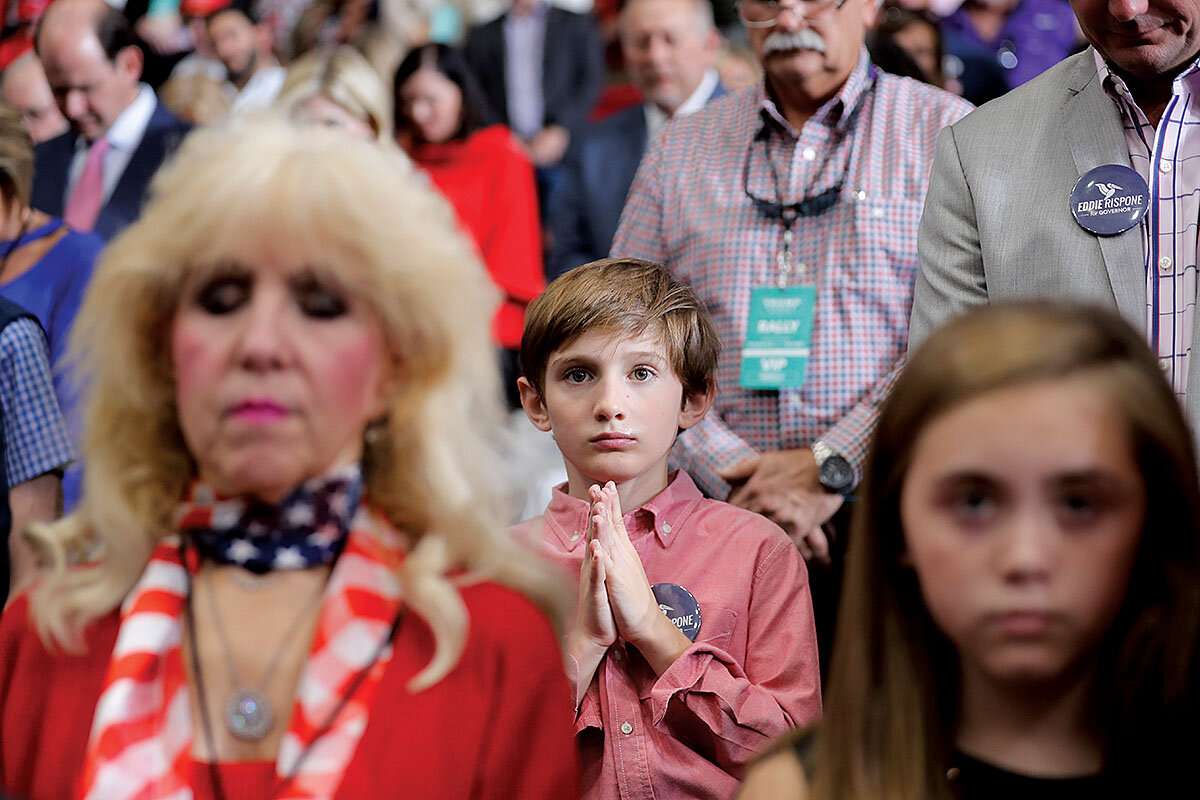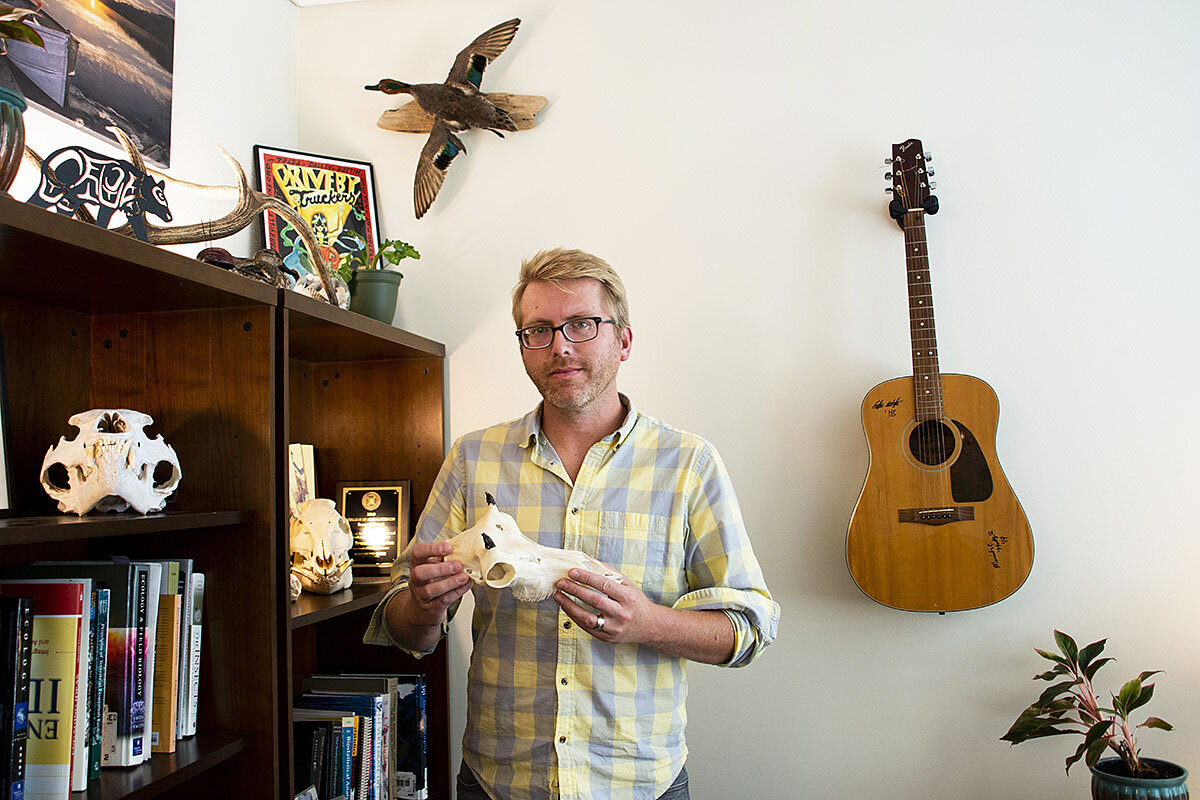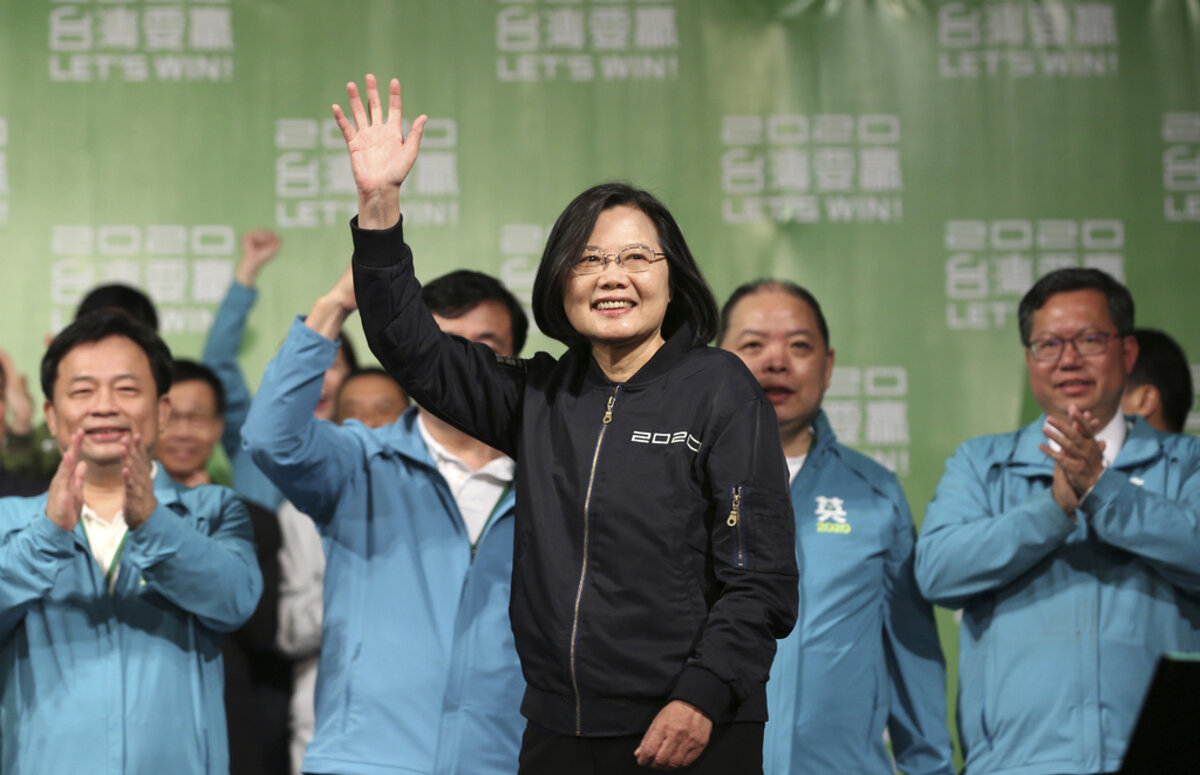What do Iranians want from their leaders – just to do a better job ruling, or fundamental change? In the latest mass protests, one Iranian analyst says, “the voice of the people” is starting to emerge.
Monitor Daily Podcast
- Follow us:
- Apple Podcasts
- Spotify
- RSS Feed
- Download
 Kim Campbell
Kim Campbell
Our stories for you today are on Iran’s self-reflection after a troubling week, China’s emerging role in the Middle East, Quebec’s ban on religious symbols, how parents are talking about politics with their kids, and how offbeat science leads to new thinking. But first, just how upset should people be about this year’s Oscar nominations?
For the second year in a row no women directors were chosen, leaving out Greta Gerwig, for example, who helmed best picture nominee “Little Women.” Only one person of color is in the acting categories: Cynthia Erivo, for her lead role in “Harriet.”
The resulting #OscarsSoMale and #OscarsSoWhite Twitter jabs, the commentary from experts that Tinseltown is stuck in the 1970s, and the creation of spinoff awards come from a public that wants to see a range of perspectives with its popcorn.
Despite the noteworthy omissions, everyone from Gil Robertson, president of the African American Film Critics Association, to Ms. Gerwig says the forward movement of the past few years continues. Last year was a peak one for the ranks of women directing top movies, according to one just-published study. There are also more women nominated this year than in the past. And, in a first, a Korean movie, “Parasite,” and its director, Bong Joon-ho, are best film and director contenders.
Monitor film critic Peter Rainer suggests the solution lies in the pipeline. “The real focus should be on diversity not in the awards stage, but in the initial hiring stage,” he tells me. “It can only benefit the art of film to have as many voices as possible telling and acting in stories.”
As Ms. Gerwig told The New York Times on Monday, “There have been great strides and we’ve got to keep going: keep writing, keep making, keep doing. It’s all there.”










